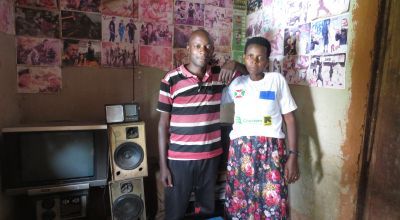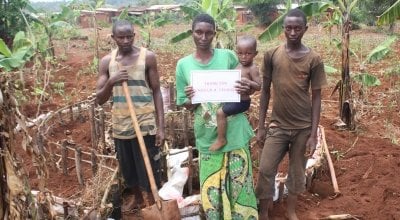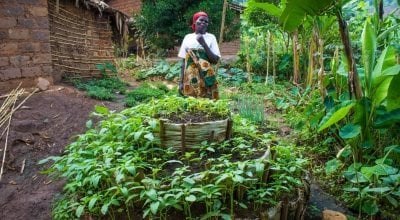
Read our 2024 annual report

Knowledge Hub
Preparing for election violence in Burundi
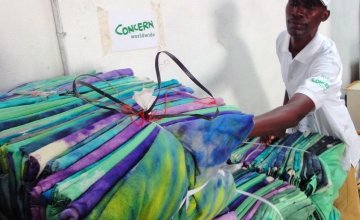
Elections in Burundi are causing turmoil in the country. Rising violence and unrest is directly impacting the lives of thousands of people – we are preparing to help, whatever the outcome.
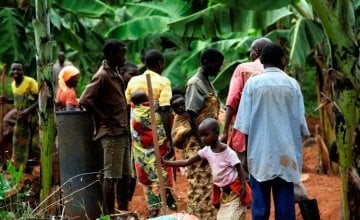
Instability
Following months of tension and speculation, the crisis started on April 26 in Burundi’s capital, Bujumbura, after the ruling party announced current President Pierre Nkurunziza as their candidate for the 2015 Presidential elections.
With Nkurunziza finishing his second term as president, many felt that his attempt to seek a third term was unconstitutional, sparking widespread demonstrations and civil unrest that culminated in a coup d'état on May 13. While the coup d'état was thwarted, tensions and violence in the country have continued to rise.
Within Burundi, the instability has hampered economic activity, as prices have increased and many businesses’ sales have slowed down. Some have closed altogether.
More than 165,000 people have fled to neighboring Rwanda, Democratic Republic of Congo, Uganda, and Tanzania since April. The fear is that the presidential elections, which were postponed to July 21 from their original date of June 26, could set off widespread violence and trigger a larger humanitarian crisis.
Preparation
With programs in Burundi for 18 years, Concern Worldwide has team members on the ground in Bujumbura and two provinces, Cibitoke and Kirundo, who are on standby and have put mechanisms in place to get assistance to people affected by the election violence as quickly as possible. This includes emergency contingency supplies that are pre-positioned within the country and using mobile phone technology to get people access to cash. Meanwhile, in Rwanda, the Concern team is responding to the nutrition needs of Burundian refugees in the Mahama camp.
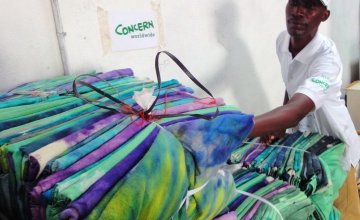
Emergency supplies
If violence breaks out and more people are displaced, Concern has 1,000 kits of relief supplies on-hand in Burundi to distribute. These can also be used if the Burundians who fled to neighboring countries return en masse. The kits include tarpaulins and shelter materials, solar lights, kitchen sets, jerry cans, buckets, blankets, sleeping mats, mosquito nets, hygiene items, and other essentials. We are also working with suppliers in the country and across the region so that we can procure and position more supplies, if needed.
Quick access to cash
Concern’s long-term health and nutrition, education, and livelihoods programs have continued despite the insecurity. This includes a graduation program that is helping 2,000 extremely poor families establish ways to earn a living through trainings, savings and loan groups, and regular cash allowances, which are transferred directly to their mobile phones.
During the crisis, many families were forced to sell some of their assets and suspend their livelihoods activities. In response, we are planning to provide these families with an additional cash allowance, or "protection transfer," so that the progress they have made over the past two years is not lost and families can meet their basic needs.
We can also distribute SIM cards – the mechanism through which money is sent and received – to a wider group so that people who were forced from their homes or are returning to find their harvests, seeds, and food stocks gone have the funds to meet their basic needs and start again.
Mass nutrition screening in northern Burundi
The Concern teams together with Burundi’s Ministry of Health and UNICEF, screened nearly 100,000 children under five years old for acute malnutrition in Kirundo province in northern Burundi. The results found malnutrition to be below emergency levels, with six percent of children moderately malnourished and 1.5 percent severely malnourished. However, if violence escalates and markets are further disrupted, there is a risk that malnutrition rates could increase, especially among those who are forced from their homes and lose their livelihoods.
Treating malnutrition among refugees in Rwanda
There are now more than 65,000 Burundians seeking refuge in Rwanda. Concern, together with our partner, American Refugee Committee (ARC), is responding to the nutrition needs in Mahama camp, which is home to nearly 27,000 refugees, in eastern Rwanda. We treated more than 3,000 severely and moderately malnourished among children under five years old and referred those with medical complications to the nearby hospital for inpatient care.
To prevent malnutrition, we distributed supplementary food to children ages six months to five years old as well as pregnant and breastfeeding mothers. We also provided fresh food to anemic children and people living with chronic health problems, such as HIV, tuberculosis, and diabetes. More than 20,600 people in the camp also received nutrition education.
A violent history
Burundi has a long history of ethnic violence. The civil war that broke out in 1993 and claimed the lives of 300,000 people was triggered by elections. However, the peace agreement that ended the civil war has held for more than 10 years. The fear is that post-election fighting could force more people to flee to neighboring countries while the economy in Burundi would continue its downward spiral, eroding years of development.
“We are all hoping for a peaceful election, but it is our responsibility to be ready if widespread violence does break out,” says Karine Coudert, Concern Worldwide’s Country Director in Burundi.



